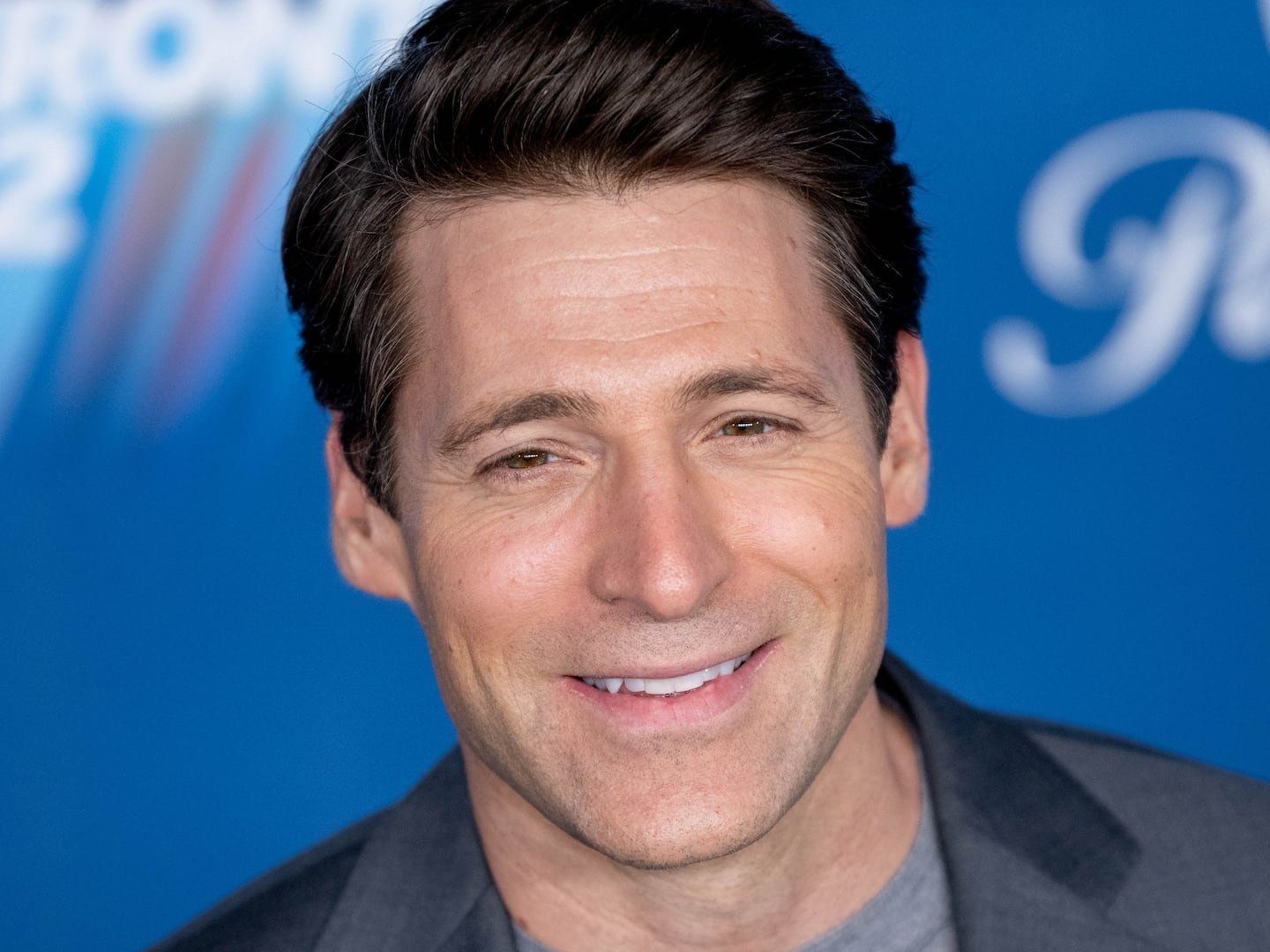
An underground hit for years in sexually experimental circles, Dossie Easton’s and Janet W. Hardy’s The Ethical Slut: A Practical Guide to Polyamory, Open Relationships and Other Adventures makes the case that we should all enjoy an occasional threesome, foursome, and moresome with friends and strangers. “We believe it’s OK to have sex with anybody you love,” Easton and Hardy write, “and we believe in loving everybody.”
“Many people find their partner advertising unbeknownst to them; people set up anonymous dates and it turns out to be their spouse who answered the ad.”
Newly updated, expanded, and blurbed by the likes of Margaret Cho and David Crosby, the book’s authors seek to help individuals and couples who “dream of freedom.” The Daily Beast spoke to Easton, a sex therapist outside San Francisco who “has been an ethical slut since 1969.”
By “slut,” you don’t mean someone who detaches sex from emotion, or who selfishly takes advantage of others; instead you urge readers to seek love—genuine emotional connections—in “abundance,” rejecting the notion that our affection is a pizza with only so many slices.
This idea started way back in the communal era in 1969 when I was in Haight-Ashbury. I said, “If I want to change my world in terms of how relationships are, and be non-monogamous forever in my own personal life, it should be about warmth and affection.” One of the very first things I learned was how to be affectionate toward many lovers, which is very hard to do coming from New York where things are very cool and detached.
There was no precedent but it worked; I could love them, be there for them, care for them—if someone was sick I’d bring them chicken soup—and be loyal in a new way that fit for a lot of people, including other women and single mothers. We were the love generation, and we were very new to sexual freedom. There was a lot of idealism. Very quickly I had a community of people excited about raising our children. We created the proverbial village long before It Takes a Village.

Young people in the 21st century seem much more utilitarian about hooking up, whereas emotions are reserved for relationships, so it’s bizarre to think of one night stands as romantic.
My primary partner is of your generation, actually. People who prefer polyamory are very into the notion that these relationships can be connected and full. I have a whole bunch of lovers whom I have dates with once per year. We’re dear, dear friends… I have a primary partner—my life partner—whom I live with, and a secondary lover, and some playmates locally. Essentially what you are creating is a very complicated, interconnected family. It’s a community, and if someone has an illness or a breakup, everyone is there to offer support. I can’t go around in the Bay Area though because I’ve ceded it to my clients; I’ve ruled out sharing sex with my therapy clients.
Has the Internet made it easier to live this way, and experiment if people are curious?
The polyamory community has grown enormously. A lot, lot, lot of people are meeting on Craigslist or OKCupid. You might go play within the hour, if you want a particular kind of relationship… I think it’s fabulous! The anonymity facilitates more people trying this out, although many people find their partner advertising on Craigslist unbeknownst to them; people set up anonymous dates and it turns out to be their spouse who answered the ad.
You write that you chose polyamory after your ex-husband attacked you: “I decided he was right—I am a slut, I want to be a slut, I will never promise monogamy again. I will never be a piece of property again…” (Dossie says she was monogamous at the time.) Was your choice a reaction to a bad marriage, or something you had always considered?
A little of both, but back then you had only two options after a one night stand: Either get married or never speak to the person again. I hated that! I would be very disappointed when those people didn’t want to be my friend, just my partner for a night. We would go home together and have a lovely time, and then where did they go? You want to make love with me, so why don’t you want to be my friend? We live in such an alienated society that you might not know anyone in a big city even if you are having sex. That’s dumb! I knew that at 19, but people in 1969 thought I was nuts, so it was very exciting when the book had such an impact. Many people have told me it saved their lives.
There is a huge reason we call it the ethical slut: You should behave in such a way that your actions don’t cause harm. Sex is not something that you should steal from people, take from people, or trick them into doing; you should treat all of your relationships with respect.
You argue that monogamy is socially conditioned. Would you say that in a way it’s unnatural?
Now that we have DNA testing, scientists can’t find one species that is consistently monogamous, so it’s not as naturally inscribed as many people believe. Clearly there’s another end of the spectrum—people who would prefer to be homebodies, want a quiet life, want things serene—and that is just fine. Monogamy is a fine lifestyle, there’s nothing wrong with it, but our society is wrong to say that it’s the only lifestyle, and you’re pathological if you choose something else.
We are consenting adults in an active collaboration for the pleasure and well-being of everyone involved. It can be uncomfortable or painful or emotionally challenging—it can be very, very complex—but if you want to grow then you have to challenge yourself.
An orgy is a great way to get over stage fright?
It is! It is! And bad body image.
Earlier this year scientists seem to have discovered a “monogamy gene” that some people possess and some lack. Is the social-conditioning argument rendered obsolete if it’s proved our sexual behavior is actually hardwired?
That’s interesting, and I’d like to read more about it, but I am very suspicious of all these genes for this or that or the other thing.
Are children raised in these communities any different than those raised in “normal” families?
We did not evolve to have nuclear families. For most of our history, the elderly would care for children because every able-bodied person in the tribe was out there working, including mothers. A whole community was responsible for the children. … It makes them socially healthier, and they have a huge number of role models.
Do most people in the polyamory community tend to come from conservative households?
In the ‘50s everyone came from a conservative household. There weren’t any other options around. Now I’m seeing second-generation sluts.
The Republican Party has never been more unpopular, due in large part to its increasing religious fundamentalism, and the American mainstream is finally accepting gay marriage. Does the current political landscape give you hope?
I am astounded. I am astounded that we have a greater variety of permissible lifestyles, but polyamory still hasn’t come out in the open; it’s still a button-pusher… but I know a lot of young people who don’t want to be monogamous, which is astounding. The constraints have disappeared. We have openly gay and lesbian politicians, corporate executives, and movie stars bringing their lovers to premieres. People are growing up with a whole world of choice in front of them.
A few years ago I watched a gay D.C. councilman give a speech on the need for same-sex marriage, and someone in the audience demanded the right to marry “multiple partners.” Suddenly the councilman was lecturing about how the “traditional” two-parent family keeps society from disintegrating, which seemed odd considering the circumstances.
We should be able to have the same rights everyone else has. The government has no rights to issue marriage. A lot of conservatives actually agree with that! Why should the government tell us how to arrange our personal contracts, or how we’re going to deal with our mortgage?
There is a tendency among all groups to say “sex is only OK if…” If you’re married, if you’re married and both virgins, if you are two genders, if there are only two of you… I say that sex is OK if everyone is happy, but that’s as far as I go. People have been thinking about sex as conditional for so long, they don’t know how to get out of that trap.
A recent interview with Andrew Sullivan discussed how he was attacked—rhetorically and physically—in the ‘80s and ‘90s for his pioneering support of gay marriage. Apparently they saw him as an Uncle Tom figure because marriage was viewed as heteronormative, yet these days the gay community seems united in support of marriage rights. What’s your opinion?
Gay marriage is a very positive development; it has brought everybody into the light… I’m not going to get resentful that my issues aren’t included in that discourse because everyone should have equal rights. There isn’t total freedom yet—Prop 8 passed, and in small towns people still get killed in hate crimes related to sexuality—but any movement that takes relationships seriously is good… although I don’t agree that marriage is the only way to take relationships seriously.
Liberal states famously have fewer divorces and out-of-wedlock births than conservative states. Why is that?
If you think sex is only for marriage, you get married because you are horny. Eight out of 10 of my classmates got married because they were pregnant. We were not allowed access to birth control because you needed a letter from your husband. Now young people think it’s absolutely normal to use protection—a guy who won’t use condoms isn’t going to be real popular—but by forbidding so much, you guarantee that people will explore.
The more you attempt to stifle sexuality the more likely it is to be done without thought. Conservatism doesn’t prevent any of these things. We need better sex education, better relationship education.
Sex communes are legendary for flaming out over time. Are you able to find a sense of permanence in multiple-partner relationships?
They are time-bound usually, but most relationships are time-bound, especially now that people are free to leave unhappy marriages. We should all get better at breaking up.
Open relationships often save relationships. If two people have lost intimacy because of the mortgage or the business, outside lovers may actually reintroduce romance and excitement. You still get to keep the person you love.
I showed your book to my girlfriend. “If you ask me to try any of this,” she told me, “I will chop your balls off.” How do I get her to not feel this way?
I heard the same thing when I was being interviewed by some shock jock, and a woman called in to say she would hit her husband with a frying pan. Violence is preferable to open relationships? That’s kind of terrifying… isn’t it?
Plus: Check out Book Beast, for more news on hot titles and authors and excerpts from the latest books.
Marty Beckerman is the author of Generation S.L.U.T. (MTV Books) and Dumbocracy. (Disinformation). His Web site is www.MartyBeckerman.com.






